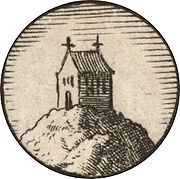
Church visible
Encyclopedia

Theology
Theology is the systematic and rational study of religion and its influences and of the nature of religious truths, or the learned profession acquired by completing specialized training in religious studies, usually at a university or school of divinity or seminary.-Definition:Augustine of Hippo...
and ecclesiology
Ecclesiology
Today, ecclesiology usually refers to the theological study of the Christian church. However when the word was coined in the late 1830s, it was defined as the science of the building and decoration of churches and it is still, though rarely, used in this sense.In its theological sense, ecclesiology...
referring to the visible community of Christian believers on Earth, as opposed to the Church invisible or Church triumphant
Church militant and church triumphant
In Christian theology, the Christian Church, or Church Universal, is traditionally divided into:*the Church Militant , comprising Christians on earth who are living; christian militia, who struggle against sin, devil and "..the rulers of the darkness of this world, against spiritual wickedness in...
, constituted by the fellowship of saints and the company of the elect.
In ecclesiology
Ecclesiology
Today, ecclesiology usually refers to the theological study of the Christian church. However when the word was coined in the late 1830s, it was defined as the science of the building and decoration of churches and it is still, though rarely, used in this sense.In its theological sense, ecclesiology...
, the Church visible has many names, such as Kingdom of God
Kingdom of God
The Kingdom of God or Kingdom of Heaven is a foundational concept in the Abrahamic religions: Judaism, Christianity and Islam.The term "Kingdom of God" is found in all four canonical gospels and in the Pauline epistles...
, Disciples of Christ and People of God
People of God
"People of God" is a description that the Tanakh or Old Testament applies to the Jewish people and that the New Testament applies to Christians. Within the Catholic Church, it has been given greater prominence because of its employment in documents of the Second Vatican Council .-Usage in the...
. St. Ignatius of Antioch
Ignatius of Antioch
Ignatius of Antioch was among the Apostolic Fathers, was the third Bishop of Antioch, and was a student of John the Apostle. En route to his martyrdom in Rome, Ignatius wrote a series of letters which have been preserved as an example of very early Christian theology...
was one of the first Christian authors to write about the subject, insisting that the Church visible was centered around the Bishop
Bishop
A bishop is an ordained or consecrated member of the Christian clergy who is generally entrusted with a position of authority and oversight. Within the Catholic Church, Eastern Orthodox, Oriental Orthodox Churches, in the Assyrian Church of the East, in the Independent Catholic Churches, and in the...
and the Eucharist
Eucharist
The Eucharist , also called Holy Communion, the Sacrament of the Altar, the Blessed Sacrament, the Lord's Supper, and other names, is a Christian sacrament or ordinance...
or Last Supper.
In early Christianity
Early Christianity
Early Christianity is generally considered as Christianity before 325. The New Testament's Book of Acts and Epistle to the Galatians records that the first Christian community was centered in Jerusalem and its leaders included James, Peter and John....
, anti-Gnostic and anti-Arian writers such as Irenaeus
Irenaeus
Saint Irenaeus , was Bishop of Lugdunum in Gaul, then a part of the Roman Empire . He was an early church father and apologist, and his writings were formative in the early development of Christian theology...
and Cyprian of Carthage would often focus on the visible Church in order to oppose various opinions deemed heretical. It was in this context that the expression Extra Ecclesiam nulla salus
Extra Ecclesiam nulla salus
The Latin phrase Extra Ecclesiam nulla salus means: "Outside the Church there is no salvation". The most recent Catholic Catechism interpreted this to mean that "all salvation comes from Christ the Head through the Church which is his Body."...
came about, which heavily insisted on the non-distinction between the visible and invisible Church.
In the context of contemporary pluralism
Religious pluralism
Religious pluralism is a loosely defined expression concerning acceptance of various religions, and is used in a number of related ways:* As the name of the worldview according to which one's religion is not the sole and exclusive source of truth, and thus that at least some truths and true values...
, there have been theological currents that downplay the role of liturgy
Liturgy
Liturgy is either the customary public worship done by a specific religious group, according to its particular traditions or a more precise term that distinguishes between those religious groups who believe their ritual requires the "people" to do the "work" of responding to the priest, and those...
and the public role of Christianity in order to remove it to the private sphere. Church leaders have responded by re-asserting the public, social and political character of the Church.

